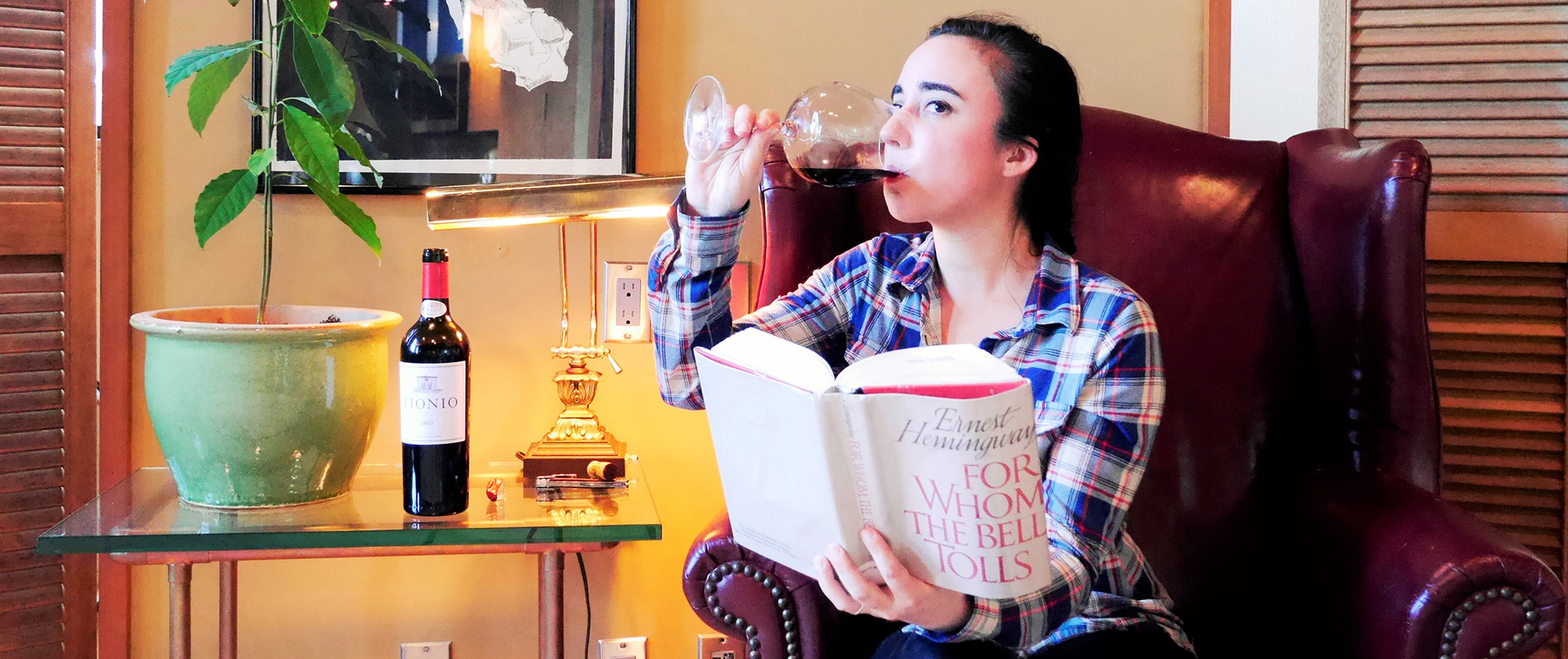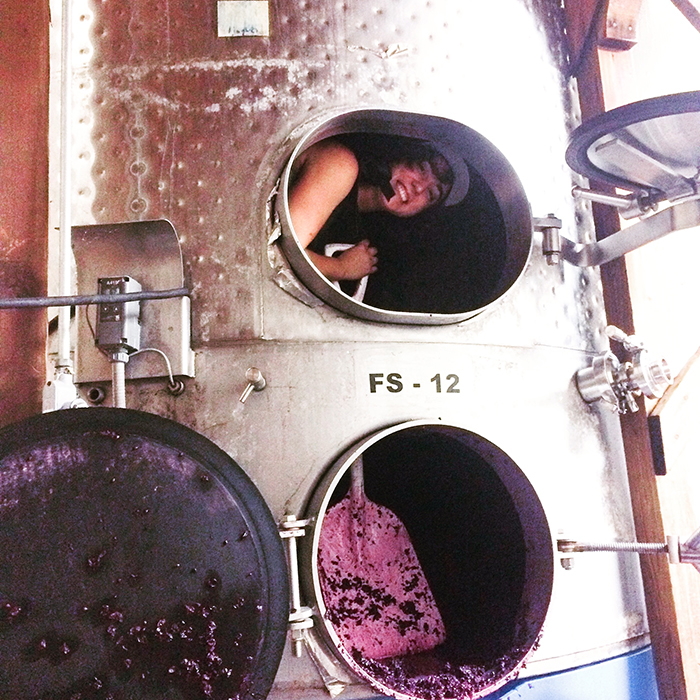
Read more about Amira Makansi’s (AB’10) book Literary Libations and get a recipe for butterbeer. (Photography by Steven Addington)
Amira Makansi, AB’10, winery marketing coordinator, on how she got her job.
In 2018 Amira Makansi, AB’10, published the book Literary Libations: What to Drink with What You Read (Skyhorse Publishing). Like many authors, she has a day job. Unlike many authors, she has what could be considered a dream job: marketing coordinator at Irvine & Roberts Vineyards in Ashland, Oregon.
The interview has been edited and adapted.
How did you get into wine marketing?
My background in the wine industry is in production—making the wine. People think of wine as this romantic thing, but there’s an aspect that's very technical. My goal is to communicate the intention of the wine making team to the outside world.
What does that involve?
I do a lot of technical writing. I create all the promotional materials: flyers, wine club handouts. I do all our direct consumer marketing: email, social media.
I also do training for staff. A lot of people come into jobs in the tasting room and they're excited about wine, but they don't always know much about it. If you have fine dining experience, you don't necessarily know what goes on in the wine cellar.
Why did you decide to move out of wine making?
Wine making is seasonal. I still loved harvest. There’s a lot of energy, a lot of new people brought in, because it’s a period of very high labor demand. But the rest of the time, I just wasn’t as interested.
Production is physically demanding work. I was developing carpal tunnel—repetitive stress injury. I’m a little bit hard of hearing, and I noticed that my hearing was being affected. There’s a lot of industrial machinery involved in harvesting and bottling, and it’s all stainless steel, so it’s all rattling. That’s a side of wine making that people don’t necessarily think about.

What are the downsides of your current job, if any?
It’s really hard to articulate if there are any downsides.
Has anything you learned at UChicago been useful?
French. I was able to parlay that into a three-month stint traveling around France and working in different vineyards.
And this is the cliché UChicagoan thing to say, but the ability to think critically, to break it all apart and rebuild it, has been really helpful on the marketing side: What is our philosophy and our identity? And how do we express that?
After a day of writing about wine, do you want to relax with a glass when you get home, or does that seem like more work?
I really like drinking wine, especially white wine: chardonnay, chenin blanc, or best case, champagne. If I’m relaxing on the couch, it’s with a glass of white wine.
I feel like wine can be a bit gendered—red is for men and white is for women. Sometimes there’s a need to prove you’re one of the guys when you’re drinking red wine. I don’t love that attitude. I do like red wine with food.
My partner is a winemaker and I love to get together with him and his winemaker friends and critique wine. We get really nerdy, talking about the tannin profile, acid profile. Is this wine focused, is it broad, what’s the structure? Then after a couple of glasses, you don’t really care anymore, you’re just enjoying.
But sometimes after work I drink beer. And I love a well-made cocktail.
It seems like so many people have specific tastes in beer now—more so than wine.
I would pay close attention to some developments coming out of Oregon. There are a couple of companies out here that are doing some cool work with canning wine. That is totally going to be wine for the people.
The beer world has shown that there’s an approach to packing and pricing that wine hasn’t tapped into yet. I think there’s a huge, thirsty market segment out there that is ready for change.
Any advice for other alumni who want to get into the wine industry?
I would say, talk to everybody you possibly can. Every career is different in terms of skill set. It’s important to know what you’re getting into, so you don’t spend ten years of your life trying to become a sommelier, for instance, then find out you actually hate serving guests.
When I was starting out, I did a lot of interviews with people in the industry. It didn’t help me figure out what I wanted to do, but it helped me figure out what I didn’t want to do. That was really useful.
Find out what to drink with Harry Potter, and learn more about Makansiʼs book Literary Libations.
